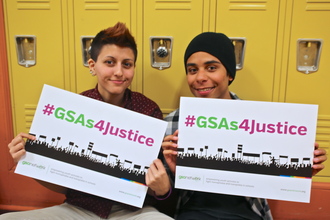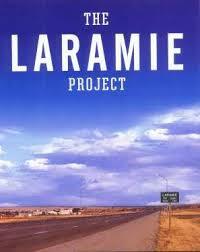- Featured
- Academics
- Accessibility
- Anti-Trans Legislation (State/Federal)
- Art & Mural Projects
- Black Lives Matter in Schools
- Bodily Autonomy
- Book Bans & Curriculum Censorship
- Bullying & Harassment
- Climate Justice
- Community GSA Formation
- Culturally Responsive Curriculum
- Discipline & Surveillance Policies
- Dress Code Reform
- Events & Celebrations
- Free Palestine / Anti-Occupation Solidarity
- Immigration Justice / Abolish ICE
- Inclusive Sex-Ed
- Indigenous Sovereignty & Land Back
- Language Justice/ Multilingual Access
- LGBTQ-Inclusive Curriculum
- Mental Health Access
- Police Free Schools
- Restroom & Locker Room Access
- School Budgets & Resource Allocation
- School Clubs (GSAs, Affinity Spaces)
- Student Loan & College Access Reform
- Student Media & Free Expression
- Substance Free/Harm Free Zones
- Teacher & Staff Accountability
- Transgender Youth Rights
- Visibility & Pride/GSA Days
- Voting Rights & Youth Civic Power
- Youth Labor & Economic Justice
- Youth Leadership & Decision Making
- More
-
North Carolina Students Need Solutions: Adopt Restorative PracticesIn November 2013, Jewlyes Gutierrez, a transgender girl from California, was outrageously charged with assault for defending herself against bullying at school. A year earlier, Dynasty Young in Indiana was expelled for bringing a stun gun to school in self-defense after enduring months of harassment based on his sexual orientation and gender expression. Jewlyes, Dynasty, LGBTQ youth, and all students deserve better. Our district can -- and must -- take action now to make sure our students are never put in a similar position. We often hear about bullying in schools, but the anti-bullying and zero tolerance policies adopted in response pose just as much of a danger for LGBTQ youth of color. Together, hostile school environments and extreme disciplinary policies create a school-to-prison pipeline for youth of color, youth with disabilities, and LGBTQ youth, telling them that their lives are disposable and that simply trying to get an education carries a risk of jail time. LGBTQ youth make up just 5-7% of the youth population, but represent 15% of those in the juvenile justice system. Exclusionary practices (like suspensions and expulsions) hurt all students' ability to succeed and achieve their academic goals and dreams. We believe restorative justice practices are the best solution for school discipline problems involving bias-based bullying and harassment, because they allow schools to address the root problems behind bullying and harmful behavior. In January, the Obama administration released guidelines for improving school climate and discipline. Those guidelines recommend best practices like restorative approaches and condemn punitive policies and court referrals. It has been proven that alternative discipline with non-punitive approaches provides better student outcomes and keeps the student community together. In March 2014, the National Education Association, the American Federation of Teachers, the Opportunity to Learn Campaign, and the Advancement Project jointly released a toolkit highlighting restorative approaches as a best practice and providing guidance to administrators and educators on implementing them. In order to keep ourselves and fellow students in school, we demand that restorative justice practices, as outlined in the "Restorative Practices: Fostering Healthy Relationships & Promoting Positive Discipline in Schools" toolkit, be implemented in our district.9 of 100 SignaturesCreated by Christy B.
-
Bring the F.A.I.R. Education Act to the William S. Hart School DistrictThe bill's purpose is to amend the education code to require schools to integrate age-appropriate, factual information about social movements, current events, and history about the roles and contributions of people with disabilities and lesbian, gay, bisexual, and transgender (LGBT) people into existing social studies and history lessons. It also prevents the State Board of Education from adopting instructional materials that discriminate. This is important to the students because it reflects that the district has an interest in all their students, and also does not discriminate against them.208 of 300 SignaturesCreated by Andrew T.
-
Costa Mesa High School ,Students Need Solutions: Adopt Restorative PracticesIn November 2013, Jewlyes Gutierrez, a transgender girl from California, was outrageously charged with assault for defending herself against bullying at school. A year earlier, Dynasty Young in Indiana was expelled for bringing a stun gun to school in self-defense after enduring months of harassment based on his sexual orientation and gender expression. Jewlyes, Dynasty, LGBTQ youth, and all students deserve better. Our district can -- and must -- take action now to make sure our students are never put in a similar position. We often hear about bullying in schools, but the anti-bullying and zero tolerance policies adopted in response pose just as much of a danger for LGBTQ youth of color. Together, hostile school environments and extreme disciplinary policies create a school-to-prison pipeline for youth of color, youth with disabilities, and LGBTQ youth, telling them that their lives are disposable and that simply trying to get an education carries a risk of jail time. LGBTQ youth make up just 5-7% of the youth population, but represent 15% of those in the juvenile justice system. We believe restorative justice practices are the best solution for school discipline problems involving bias-based bullying and harassment. Further, we believe that punitive exclusionary practices (like suspensions and expulsions) hurt all students' ability to succeed and achieve their academic goals and dreams. In January, the Obama administration released guidelines for improving school climate and discipline. Those guidelines recommend best practices like restorative approaches and condemn punitive policies and court referrals. It has been proven that alternative discipline with non-punitive approaches provides better student outcomes and keeps the student community together. In March 2014, the National Education Association, the American Federation of Teachers, the Opportunity to Learn Campaign, and the Advancement Project jointly released a toolkit highlighting restorative approaches as a best practice and providing guidance to administrators and educators on implementing them. In order to keep ourselves and fellow students in school, we demand that restorative justice practices, as outlined in the "Restorative Practices: Fostering Healthy Relationships & Promoting Positive Discipline in Schools" toolkit, be implemented in our district.25 of 100 SignaturesCreated by Chris M.
-
Students Need Solutions: Adopt Restorative PracticesIn November 2013, Jewlyes Gutierrez, a transgender girl from California, was outrageously charged with assault for defending herself against bullying at school. A year earlier, Dynasty Young in Indiana was expelled for bringing a stun gun to school in self-defense after enduring months of harassment based on his sexual orientation and gender expression. Jewlyes, Dynasty, LGBTQ youth, and all students deserve better. Missouri can -- and must -- take action now to make sure our students are never put in a similar position. We often hear about bullying in schools, but the anti-bullying and zero tolerance policies adopted in response pose just as much of a danger for LGBTQ youth of color. Together, hostile school environments and extreme disciplinary policies create a school-to-prison pipeline for youth of color, youth with disabilities, and LGBTQ youth, telling them that their lives are disposable and that simply trying to get an education carries a risk of jail time. LGBTQ youth make up just 5-7% of the youth population, but represent 15% of those in the juvenile justice system. We believe restorative justice practices are the best solution for school discipline problems involving bias-based bullying and harassment. We can make this happen together by building a powerful student network to push back against school push out. Further, we believe that punitive exclusionary practices (like suspensions and expulsions) hurt all students' ability to succeed and achieve their academic goals and dreams. In January, the Obama administration released guidelines for improving school climate and discipline. Those guidelines recommend best practices like restorative approaches and condemn punitive policies and court referrals. It has been proven that alternative discipline with non-punitive approaches provides better student outcomes and keeps the student community together. In March 2014, the National Education Association, the American Federation of Teachers, the Opportunity to Learn Campaign, and the Advancement Project jointly released a toolkit highlighting restorative approaches as a best practice and providing guidance to administrators and educators on implementing them. In order to keep ourselves and fellow students in school, we demand that restorative justice practices, as outlined in the "Restorative Practices: Fostering Healthy Relationships & Promoting Positive Discipline in Schools" toolkit, be implemented in Missouri.56 of 100 SignaturesCreated by Ka'Milla M.
-
Allow the Troy High School Drama Department to put on The Laramie ProjectRecently, The Laramie Project was proposed as the spring, open audition play on Troy High School's campus. The play was vetoed by Dr. Giokaris for containing mature themes. Our school has put on plays containing mature themes before, with To Kill a Mockingbird (containing themes of rape, racism, and violence), The Cat and the Canary (in which a character was shown hanged and others shot on stage), and One Flew Over the Cuckoo's Nest (blunt depictions of abuse in mental institutions). The Laramie Project is no worse ( and likely more appropriate) than many plays we have put on in the past. Our drama department has the right to put on this production, and does not deserve to be the victim of injustice. For more info on the Laramie Project, see: http://en.wikipedia.org/wiki/The_Laramie_Project and http://community.laramieproject.org/745 of 800 SignaturesCreated by Kate D.
-
GSAs in Elementary Schools SW WAFor the kids.1 of 100 SignaturesCreated by Jade P.
-
Let Junior Highs Have GSAs!Junior High is the time that people start to question their sexuality and gender. This time is more important than ever to be able to have help and support.1 of 100 SignaturesCreated by Finn D.
-
LGBTQ Studies ProgramThe LGBTQ community is a historically under-served, underrepresented and marginalized community. Offering studies will not only dispel the myths and stereotypes associated with this community, but it will also be consistent with the colleges's Vision, Mission, Values, and Institutional Student Learning Outcomes statement as articulated by the following: "Diversity Because ARC is a community valuing the varied perspectives and experiences of students, faculty and staff, the college offers educational opportunities for enhancing cultural awareness, supporting diversity, and promoting the free exchange of ideas and the development of a culturally competent and inclusive college community." (as of 4/1/2014 per http://www.arc.losrios.edu/About_ARC/Vision_Mission_and_Values.htm)7 of 100 SignaturesCreated by ARC FIERCE G.






